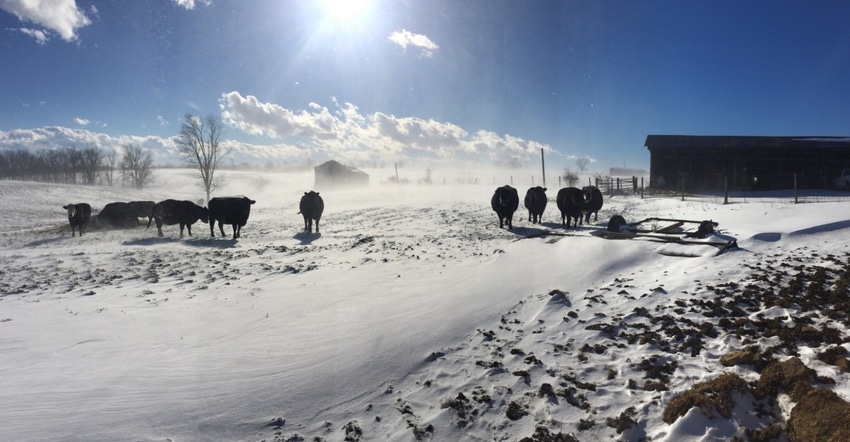Following severe weather events, Midwest senators ask Perdue to provide LIP assistance as quickly as possible.

Midwest senators sent a letter urging U.S. Department of Agriculture Secretary Sonny Perdue to provide Livestock Indemnity Program (LIP) assistance as quickly as possible.
The senators also requested that USDA delegate Livestock LIP approval authority to Farm Service Agency (FSA) county committees because they are the most familiar with local weather, disaster events and the livestock management practices of area farmers and ranchers.
The letter was from Sens. Chuck Grassley (R., Iowa), Joni Ernst (R., Iowa), John Thune (R., S.D.), Kevin Cramer (R., N.D.), Steve Daines (R., Mont.), John Hoeven (R., N.D.), Jerry Moran (R., Kan.), Mike Rounds (R., S.D.) and Jon Tester (D., Mont.).
The letter follows a series of severe weather events in the Rocky Mountains, Plains, Mississippi Valley and Great Lakes regions that have experienced devastating livestock losses due to recent extreme weather events.
“Cold is much deadlier to livestock, especially newborn or young livestock, at 10°F when accompanied by high winds and/or excessive moisture than simply -10°F,” the senators wrote. “In a blizzard, death can occur to a newborn calf in less than an hour when unintentionally exposed to these conditions. A combination of weather factors occurring simultaneously often kills and harms livestock over a short period of time compared to a single adverse weather event, and to place a finite time eligibility requirement such as ‘duration for at least three consecutive days’ is not realistic and can result in livestock producers being determined ineligible and denied LIP assistance by FSA for legitimate livestock death losses. In addition, severe storm events that occur at critical times, such as calving and lambing cycles, are much more devastating than when livestock are older and much more able to withstand weather-related stresses.”
The senators also urged Perdue to prioritize LIP regulatory updates as USDA implements the 2018 farm bill, to revisit and broaden weather-related LIP eligibility criteria and to adhere to the management protocol changes outlined in the 2018 farm bill.
As was done in 2018, they urged Perdue to delegate LIP approval authority to FSA county committees, whose members are elected by their peers and are the most familiar with local conditions and practices instead of relying on headquarters personnel. “This would help ensure that LIP assistance is provided to producers that need it as soon as possible,” they wrote.
As the regulations governing LIP are drafted, the senators requested that USDA revisit LIP eligibility requirements regarding weather criteria and refrain from placing singular, arbitrary timelines and other definitive factors on weather eligibility considerations for LIP.
“For example, 7 CFR [Section] 1416.302 states: ‘Winter storm means a storm that is severe as to cause fatal injury to livestock and lasts in duration for at least three consecutive days and is accompanied by high winds, freezing rain or sleet, heavy snowfall and extremely cold temperatures,’” the letter stated.
They agreed that winter storms and other weather events that kill and harm livestock often consist of a combination of factors, such as wind chill, snowfall or rainfall amounts. “However, singular factors such as length of weather event, extreme temperatures and excessive rainfall or snowfall amounts can cause excessive livestock death losses as well,” they noted.
About the Author(s)
You May Also Like



.png?width=300&auto=webp&quality=80&disable=upscale)

